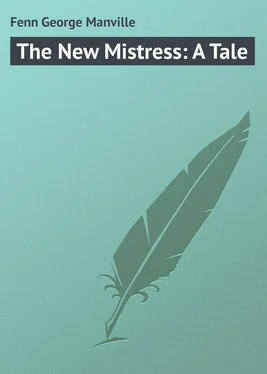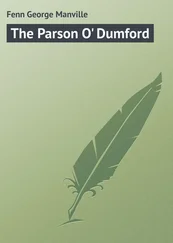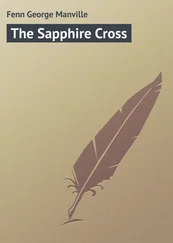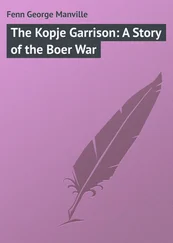George Fenn - The New Mistress - A Tale
Здесь есть возможность читать онлайн «George Fenn - The New Mistress - A Tale» — ознакомительный отрывок электронной книги совершенно бесплатно, а после прочтения отрывка купить полную версию. В некоторых случаях можно слушать аудио, скачать через торрент в формате fb2 и присутствует краткое содержание. Жанр: foreign_prose, на английском языке. Описание произведения, (предисловие) а так же отзывы посетителей доступны на портале библиотеки ЛибКат.
- Название:The New Mistress: A Tale
- Автор:
- Жанр:
- Год:неизвестен
- ISBN:нет данных
- Рейтинг книги:5 / 5. Голосов: 1
-
Избранное:Добавить в избранное
- Отзывы:
-
Ваша оценка:
- 100
- 1
- 2
- 3
- 4
- 5
The New Mistress: A Tale: краткое содержание, описание и аннотация
Предлагаем к чтению аннотацию, описание, краткое содержание или предисловие (зависит от того, что написал сам автор книги «The New Mistress: A Tale»). Если вы не нашли необходимую информацию о книге — напишите в комментариях, мы постараемся отыскать её.
The New Mistress: A Tale — читать онлайн ознакомительный отрывок
Ниже представлен текст книги, разбитый по страницам. Система сохранения места последней прочитанной страницы, позволяет с удобством читать онлайн бесплатно книгу «The New Mistress: A Tale», без необходимости каждый раз заново искать на чём Вы остановились. Поставьте закладку, и сможете в любой момент перейти на страницу, на которой закончили чтение.
Интервал:
Закладка:
The cause of Miss Burge’s start was the preliminary boom boom, boom of Mrs Thorne’s horror, the big drum, for the band had been marched up silently to the front of the schools, and the next moment the place was echoing with the brazen strains.
Chapter Ten.
Mr Canninge Assists
Mr William Forth Burge was gorgeous in the newest of frock-coats and the whitest of waistcoats, as he stood outside the schools watching the marshalling of the little forces, and then, glossy hat in one hand, orange handkerchief in the other, he gave the signal to start; and, with the excellent brass band playing its loudest, and the children for the most part bearing flowers or flags, the long procession started, to march up the High Street, round the market-place, past the church, and in and out of Bush Lane and Padley’s Road, the boys cheering, the girls firing off a shrill “hurrah” now and then; and whenever the band ceased, either the boys or the girls were started in some simple school chorus, such as poor George W. Martin or Hullah wrote, to be sung ere long through the length and breadth of the land.
It was a simple affair, but well worth seeing, if only to watch the faces of the mothers and fathers of the children, ready at their doors to smile at “our Mary,” or “little Jack,” or “the bairns.”
Mr William Forth Burge was perspiring everywhere – now in the front to stimulate the band, now standing still on a doorstep, hat in one hand, orange handkerchief in the other, till the whole procession, boys and girls, had passed, with a word for every one in turn, and looking thoroughly happy in the simplicity of his heart.
Mr Chute, on the contrary, was very dignified and stern, but ready to raise his best hat to Hazel whenever he had a chance.
At last the vicarage was reached, a halt called, and the children gave a hearty cheer, which brought out the vicar, now ready to join Mr William Forth Burge and walk with the schools, the town being passed.
There needed no fugleman to bring forth cheers from the children as they reached the gates of the garden, for here was a wonderful archway of evergreens and flowers, the work of the two gardeners, and beneath this they had hardly filed before numbers of the townspeople began to arrive. Then there was a carriage or two, and, assisted by the vicar’s sisters, little Miss Burge had quite a reception on the green terrace in front of the drawing-room, the wives and daughters of the neighbouring clergy, who all wished they had a William Forth Burge in their own parishes, arriving to do honour to the event.
The grounds were very pretty, and only separated by a light wire fence from a large paddock, which, having been fed off by sheep, was as smooth as a lawn; and here, for the hour before dinner, the children were marched, and sang at intervals, the band taking its turn, playing popular airs.
Miss Lambent and Miss Beatrice had noticed the new schoolmistress with a couple of chilly bows, and then devoted themselves to the assistance of “dear Miss Burge;” while the giver of the feast was busy in conference with Mr Chute about certain sports that were afterwards to take place.
“I don’t see the Canninges carriage yet Beatrice,” said Miss Lambent, in a whisper to her sister, as the ladies were strolling about the grounds and admiring the flower-beds, the conservatory, and grape-houses in turn.
“Do you think they will come?” whispered Beatrice, who looked rather flushed; but certainly the day was hot.
“She said they would. Dear me, how strange of Henry!”
The vicar had gone into the paddock, and, after raising his hat politely, was standing talking to Hazel at intervals between saying a few words to the boys and girls – words, by the way, which they did not wish to hear, for every eye was turned as if by a magnet towards the great tent, and the man and maidservants and assistants constantly going to and fro.
“Here they are at last,” exclaimed Miss Lambent. “I told you so. Now, Beatrice, what do you say?”
“Nothing,” replied her sister quietly.
“Then I say something. George Canninge wouldn’t have come here to a children’s school feast unless he had expected to meet some one particular.”
The object of their conversation had just helped a tall, handsome lady, with perfectly white hair, to descend from a phaeton drawn by a splendid pair of bays. He was a broad-shouldered, sparely-made man of about thirty, with dark, closely-cut whiskers – beards were an abomination then – and keen grey eyes, which took in the whole scene at a glance, and, what was more, to find satisfaction as he took off and replaced his grey felt hat, and then, from habit, took out a white handkerchief and dusted his glossy boots.
“How absurd, mother! Thought I’d been walking,” he said. “Bravo, Burge! He’s doing it well. Hang it mother! I like that fellow.”
“It’s a pity, dear, that he is so vulgar.”
“Oh, I don’t know. He’s frank and honesty and don’t pretend to be anything more that what he is – a successful tradesman. Never saw a man less of a snob. Oh, there are the Lambents. I say, who’s the lady talking to the parson?”
“I don’t know, my dear,” said Mrs Canninge, “unless it is the new schoolmistress.”
“Nonsense: can’t be. Oh, here’s Burge! How are you, Burge? Glad you’ve got such a fine day for your treat.”
“So am I, Mr Canninge, so am I. Thank you for coming, sir. Thank you for coming too, ma’am. My sister is up by the house, and there’s lunch in the dining-room, and you’ll excuse me, won’t you! I have such heaps to do.”
“Excuse you, of course. And I say, Burge, your going to give the youngsters some fun, I hope?”
“Fun, sir? I mean to let them have a jolly good lark.”
“Don’t let Lambent get them together and preach at the poor little beggars.”
Mr William Forth Burge’s face expanded, and he showed all his white teeth.
“That’s what I like sir. That’s the genuine old English squire said that.”
“Nonsense, Burge.”
“Oh, but it is, Mr Canninge. I know what’s what as well as most men; and, look here, sir, I mean them to thoroughly enjoy themselves to-day.”
“That’s right, and I’ll help you.”
“You will, sir?” cried the giver of the feast.
“To be sure I will; get up some races and that sort of thing.”
“I’ve got it all down on a piece of paper here, sir; only you wait. Now, I must go.”
“He is really very vulgar, George,” said the lady; “but there is a bluffness about him that I do like after all. But hadn’t we better go and speak to Miss Burge?”
“Come along then. Oh, there are the Lambents with her now.”
The Canninges went up to little Miss Burge, the lady saluting her graciously, and the young squire very heartily; and then salutations were being exchanged with the Misses Lambent, Beatrice looking bright and handsome as George Canninge shook hands in a frank gentlemanly way, as a deafening clamour arose behind them, and, turning, there was the host wielding a great dinner-bell with all his might.
As he ceased, the children cheered, the band struck up, and the little processions were marched past the company on the terrace, the boys to one end of the marquee, the girls to the other, Hazel now at the head of her troop, looking bright and animated, excited slightly by the scene, and being admired more than she knew by those whom she passed.
As she came abreast of the group, she involuntarily raised her eyes, and they encountered a grave, earnest gaze from one whom she had never before seen; and in that brief moment she was aware that she was the object of a very scrutinising examination.
The next minute she had passed between the folds of the tent door, and was busy getting her girls seated at the long table on one side, the boys occupying a second long table on the other side, both being covered with well-cooked hot joints, steaming potatoes, and, dear to all children’s hearts, plenty of pies and puddings.
Читать дальшеИнтервал:
Закладка:
Похожие книги на «The New Mistress: A Tale»
Представляем Вашему вниманию похожие книги на «The New Mistress: A Tale» списком для выбора. Мы отобрали схожую по названию и смыслу литературу в надежде предоставить читателям больше вариантов отыскать новые, интересные, ещё непрочитанные произведения.
Обсуждение, отзывы о книге «The New Mistress: A Tale» и просто собственные мнения читателей. Оставьте ваши комментарии, напишите, что Вы думаете о произведении, его смысле или главных героях. Укажите что конкретно понравилось, а что нет, и почему Вы так считаете.












